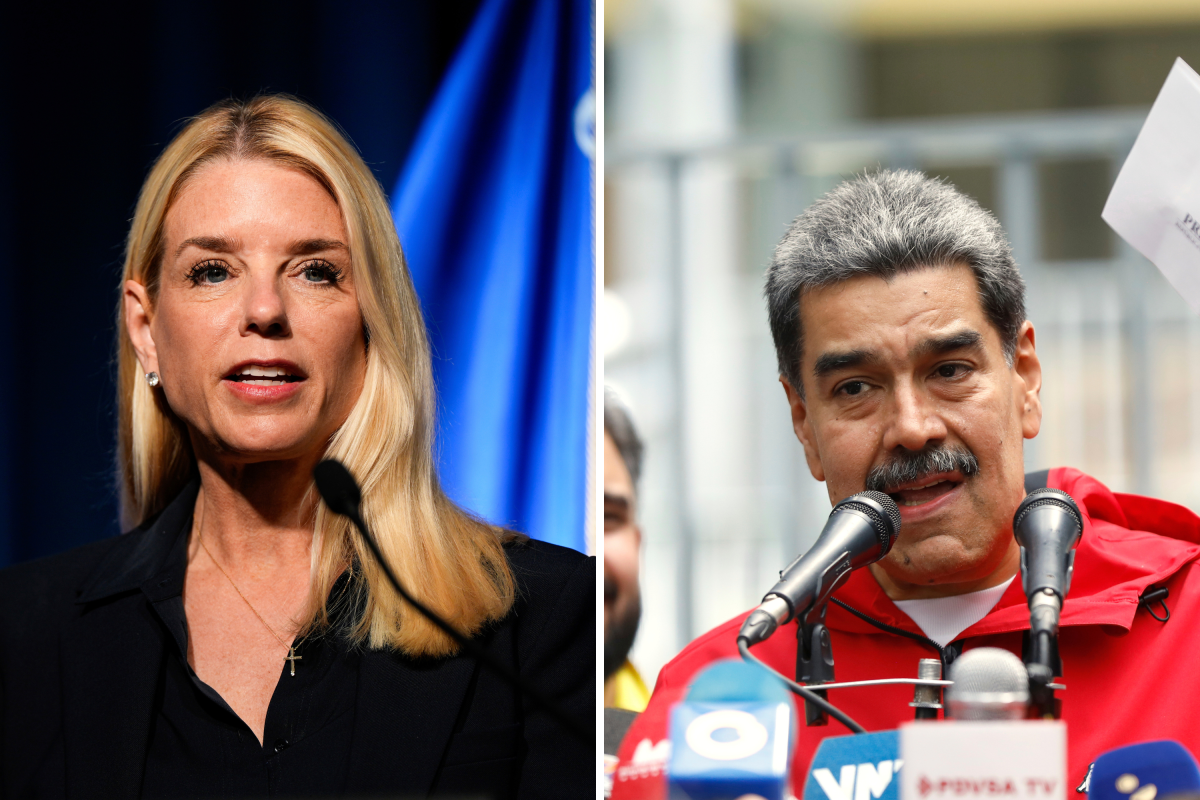Login to Continue Learning
U.S. Attorney General Pam Bondi announced on Thursday that the United States is offering a $50 million reward for information leading to the arrest of Venezuelan President Nicolás Maduro.
In a video posted on X, Bondi accused Maduro of working with criminal organizations such as Tren de Aragua and the Sinaloa Cartel. She stated, “Today, the Department of Justice and State Department are announcing a historic $50 million reward for information leading to the arrest of Nicolas Maduro.”
Bondi continued, “Maduro uses foreign terrorist organizations to bring deadly drugs and violence into our country. The DOJ has seized over $700 million in Maduro-linked assets, including two jets and nine vehicles. Maduro is one of the world’s largest narco-traffickers and a threat to national security. Under President Trump’s leadership, Maduro will not escape justice and will be held accountable.”
Previously, the U.S. was offering a $25 million reward for information relating to Maduro.
Last month, the U.S. designated the Venezuela-based Cartel de los Soles as a terrorist group, saying it is headed by the president of the South American country. The Department of the Treasury’s Office of Foreign Assets Control (OFAC) announced sanctions on this cartel as a specially designated global terrorist organization.
The OFAC statement said the group supports foreign terrorist organizations threatening U.S. peace and security, specifically Tren de Aragua and the Sinaloa Cartel.
Maduro, of the country’s United Socialist Party, was sworn in for his third six-year term in December despite credible evidence that he lost last year’s election by a more than 2-to-1 margin to Edmundo González from the Democratic Unity Roundtable (UMD). The U.S. government continues to reject Maduro’s claim to victory.
By offering such significant rewards, the U.S. government seeks to motivate insiders, opposing factions, or foreign allies to provide actionable intelligence on high-profile individuals like Maduro. This method is particularly used in cases where direct access is constrained by sovereignty, security, or diplomatic considerations. In Maduro’s case, imposing a $50 million bounty heightens the cost for anyone harboring or assisting him and could catalyze his capture should he leave Venezuela or lose protection.
In 2022, U.S. authorities placed a $20 million bounty on drug lord Rafael Caro Quintero, and a $5 million reward on Humberto Montoya Sánchez in 2007 — both captures were achieved through intelligence-driven operations. More recently, the U.S. refreshed a $5 million bounty for MS-13 leader Yulan Adonay Archaga Carías.

📚 Reading Comprehension Quiz
What reward amount did the United States offer for information leading to the arrest of Venezuelan President Nicolás Maduro before the announcement by U.S. Attorney General Pam Bondi?
Please login or register to take the quiz and earn points!



















